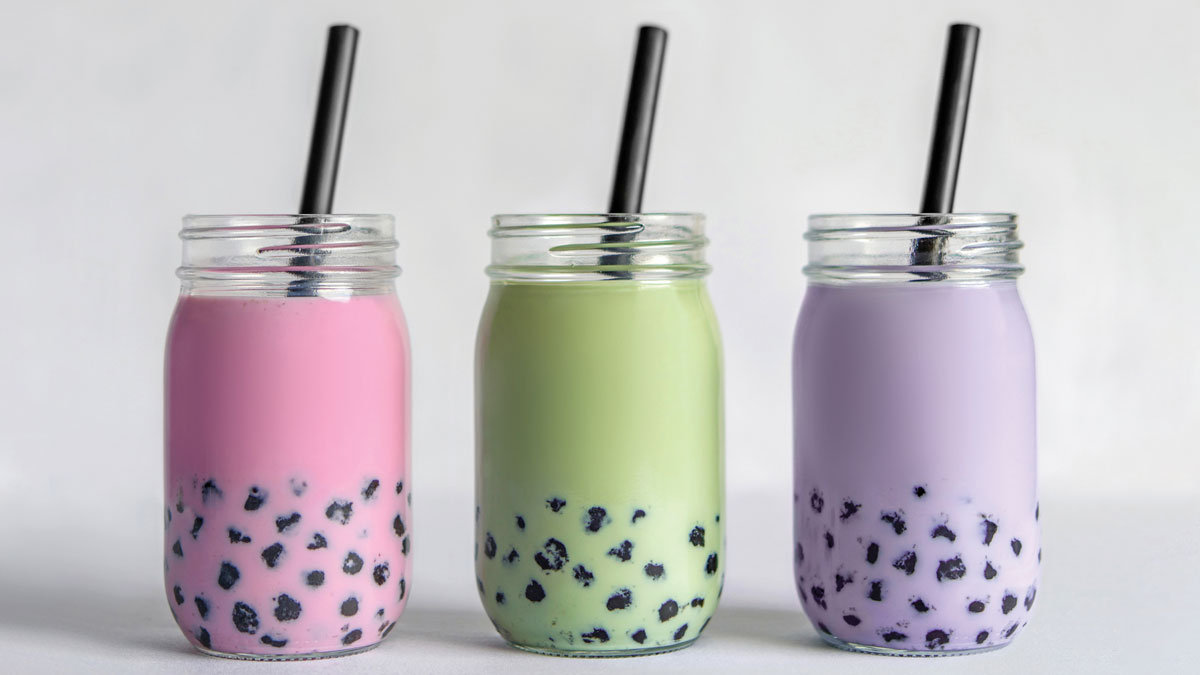Nutrition for the Ages
Nutraceuticals | APPLIED SCIENCE
Baseball legend Mickey Mantle once remarked, “If I had known I was going to live this long, I’d have taken better care of myself.” Today’s consumer is more health-conscious and aware that good nutrition can be used to help prevent rather than treat certain health conditions, especially those associated with age. Nutritional and overall wellness concerns evolve with age, and while some nutritional ingredients are important for all ages, the reason each age demographic seeks them out can vary.
“Healthy aging is relevant to all consumers, independent of age,” observes Angie Rimel, marketing communications manager, North America, GELITA. “For instance, the younger generation as teenagers become more aware of their own physiology [and] often turn to sports and higher levels of physical activity. Or, throughout adulthood, as we show the first signs of aging between 35–40 years old, aches and pains creep in and wrinkles appear. Seniors are more devoted to staying healthy, active, mobile, and independent than ever before.”
Gen X to Boomers and Beyond
Muscle mass decreases with age, so muscle maintenance and mobility become more important the older we get. According to the International Osteoporosis Foundation (IOF), muscle mass starts to decline around the age of 40, and the loss of muscle tissue may be greater around 60 or 70 years old. As one ages, strength training becomes more important, focusing on maintaining muscle, which affects overall wellness and activity. This is why lean protein consumption is important as one ages. Protein options range from egg, collagen, and whey to plant proteins like pea, soy, canola, rice, and wheat.
“The role of collagen peptides and collagen supplementation as beneficial in healthy aging has seen a dramatic rise in products and applications over the past 15 years,” Rimel says. “Today’s Generation X, baby boomers, and aging populations are in the healthy aging cycle … eating right, exercising regularly, and assessing the right solutions that fit into their lifestyles.”
Collagen peptides are not only used in beauty foods for skin, hair, and nail benefits, but they also promote mobility, muscle maintenance, and bone stability. As consumers across all generations increase their focus on active lifestyles, they are also realizing both increasing age and overuse make tendons, ligaments, and joints more injury prone and put bones at increased risk of stress fractures.
Bone stability in everyday life is important for those in critical bone mass decline. Zdzieblik et al. (2021) showed that supplementation with bioactive collagen peptides led to a clinically relevant increase in bone mineral density in the spine in postmenopausal women. The peptides signal bone-making cells, or osteoblasts, to trigger collagen synthesis and thus counterbalance the collagen degradation in the extracellular bone matrix, which is the essential framework for bone mineralization. The result is a healthy bone matrix.
Mental acuity and memory loss are also concerns for the older populations, so omega-3 fatty acids are sought after for their well-known brain health benefits. In a meta-analysis of randomized controlled trials, Alex et al. (2020) suggested that long-chain omega-3 polyunsaturated fatty acid supplementation could provide a mild benefit in improving memory function in non-demented older adults.
Oxidative stress and neuroinflammation are factors in the onset and progression of neurodegenerative diseases. A diet rich in biologically active compounds with antioxidative and anti-inflammatory properties can offer neuroprotection. Naureen et al. (2022) recently reviewed various dietary supplements associated with neurological diseases and brain aging, including polyphenols, omega-3 fatty acids, B vitamins, and herbs. They found them to have promising benefits but noted that their effects are dose-dependent and recommended evaluation in larger clinical trials.
Botanicals such as ginkgo biloba and Panax ginseng also are often taken as supplements to boost cognitive health. Ginseng contains ginsenosides, which are believed to be responsible for reported memory benefits. Ginkgo contains flavonoids, which have antioxidant properties.
Recently, Holland et al. (2022) demonstrated that dietary intakes of total flavonols and several flavonol constituents (e.g., kaempferol, quercetin, myricetin, isorhamnetin) may be associated with slower decline in global cognition and multiple cognitive abilities with older age, including episodic memory, semantic memory, visuospatial ability, perceptual speed, and working memory.
Millennials
According to the Mental Health Foundation, it is estimated that 40% of millennials are afflicted with a mental health condition. Mental health, particularly stress and anxiety, is a concern for this demographic, but compared to older generations, millennials also are more open to raising awareness and treating stress and anxiety.
Ashwagandha is one botanical on the rise for its reported beneficial effects on stress and anxiety. Akhgarjand et al. (2022) reviewed 12 randomized clinical trials that investigated the effect of ashwagandha extract on anxiety and stress. Researchers found that ashwagandha supplementation significantly reduced anxiety and stress level compared to the placebo. They also suggested that further high-quality studies are needed to firmly establish the clinical efficacy of the plant.
Low- to no-alcohol beverages and mocktails, or nonalcoholic spirits, are also popular among millennials, partly due to physical and mental health reasons. Combining this trend with botanicals could be popular among this age group. Functional ingredients for longevity, botanical bounce back, and hybrid beverages are three of the trends in Synergy Flavors’ 5 Trends to Watch Featuring Non-Alcoholic Beverages report. According to the company’s research, immunity and mood-boosting ingredients will continue to influence new product development as consumer focus on health continues to impact purchasing behavior. In addition, botanical flavors can be met with polarized opinions, according to Synergy. Wellness holding center stage provides botanicals an opportunity to bounce back, offering flavor complexity and maturity.
Gen Z
Generation Z appears to be more aware of social justice and saving the environment. Transparency, sustainability, and ethical and social responsibility as related to food and beverage are all important for Gen Z.
Expanded protein choices was one of the trends in ADM’s Global Trends Set to Drive Nutrition Innovation report for 2023. According to the company’s research, more than half (52%) of global consumers now consider themselves flexitarians, incorporating both animal-based and plant-based or other alternative proteins into their diet. Within that 52%, nearly two-thirds define their eating style as “trying to use more plant-based foods,” leading to more demand for expanded protein options. The company predicts that as technology natives Gen Z and Gen Alpha grow up, acceptance of applying scientific advancements to make our food will continue to become more commonplace, and practices like cellular agriculture, precision fermentation, hybrid products, and those with insect-based protein, are likely to flourish.
Research from GNT, a color supplier, also sheds some light on Gen Z. Generation Z’s desire to embrace joy and creativity while staying true to core values is a growing trend. “The new generation of consumers is radical, diverse, and digitally native—and it is rapidly changing global attitudes toward food and drink. Gen Z shoppers are committed to holistic wellness and are actively promoting environmental and social agendas through their purchases,” the company said in a press release. “At the same time, their devotion to social media means visual impact is more important than ever before.”
GNT refers to this consumer behavior as “healthy hedonism,” defined as eye-catching products that are good for people and planet. From seductive healthy snacks to kaleidoscopic TikTok treats, the trend showcases a lifestyle that is playful, considered, and nourishing.
Generation Alpha
The youngest generation, Generation Alpha, are mostly children of millennials born between 2010 and 2025. Health concerns for Gen Alpha are mainly focused on development of the body and brain. Nutrients like omega-3 fatty acids (DHA) for brain development, calcium for bone health, and lean protein for muscle development are commonly sought for and by this generation.
For infants, infant formula often contains DHA, whey protein, and certain probiotics for development and immunity. Human milk oligosaccharides (HMOs) are also added to formula to make it more like breast milk. HMOs are an abundant component of human milk, after lipids and lactose, and as a prebiotic, support the immune system by promoting growth of beneficial bacteria. 2’-fucosyllactose (2FL) is the most plentiful HMO in most breast milk and is most commonly added to formula.
For children, calcium and vitamin D are promoted as essential bone health nutrients. Vitamin K2, especially as MK-7, also plays an important role in promoting bone mineralization. In addition, vitamin K-dependent matrix-gla protein (MGP) helps inhibit arterial calcification (which may begin in childhood), so early supplementation with vitamin K2 may contribute to good cardiovascular health in infancy, puberty, and beyond (Koziol-Kozakowska and Maresz 2022).
Vitamin D, essential for bone health, may also play a role in promoting immune health. This past January, the U.S. Food and Drug Administration approved a petition filed by Kellogg to increase the fortification levels of vitamin D allowed within the cereal category and grain-based bars. In a Federal Register notice, the FDA agreed to amend food additive regulations to allow the addition of up to 560 IU of vitamin D3 per 100 g of cereal and up to 400 IU per 100 g in grain-based bars.
Protein, omega-3 fatty acids, vitamins, minerals—all are important at each life stage for healthy development, growth, and overall healthy aging. And to echo Mantle, food and beverage products that incorporate these essential nutrition elements will ensure a home run when it comes to healthy aging.
Learning Objectives
1. Older generations seek products for healthy aging, focusing on mobility, muscle maintenance, bone health, and cognition.
2. Millennials focus on mental health, particularly stress and anxiety.
3. Generation Z is digitally savvy and interested in products that are socially responsible and environmentally friendly.
4. Generation Alpha’s health concerns center around physical and mental development.






